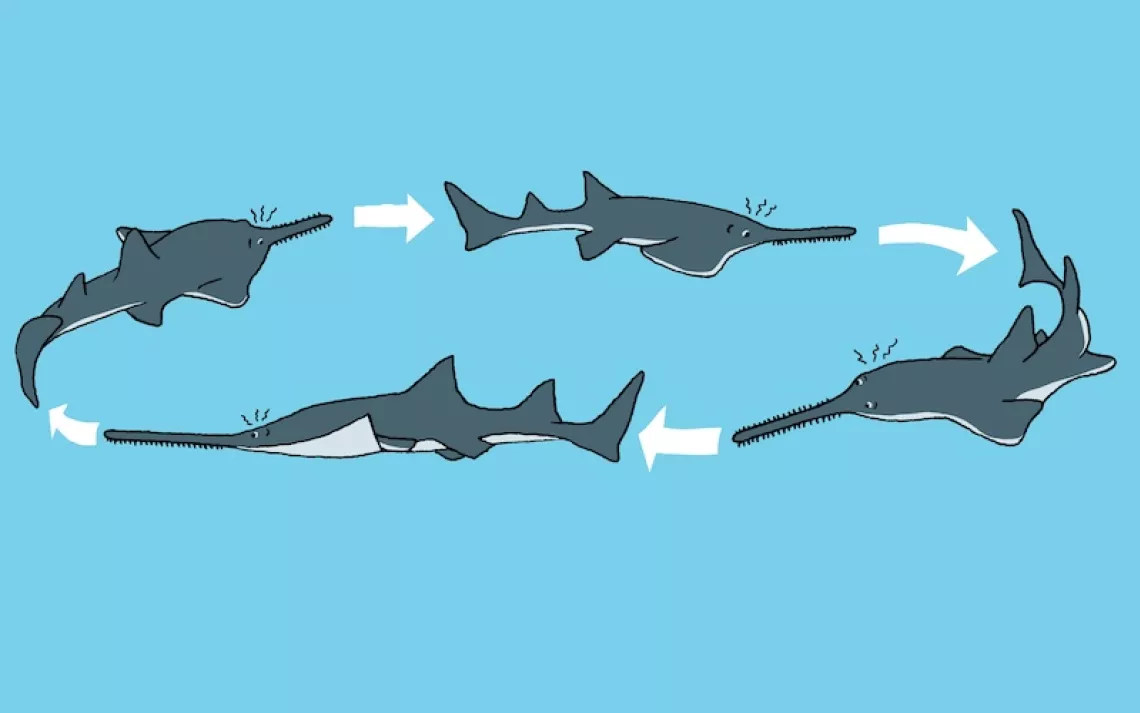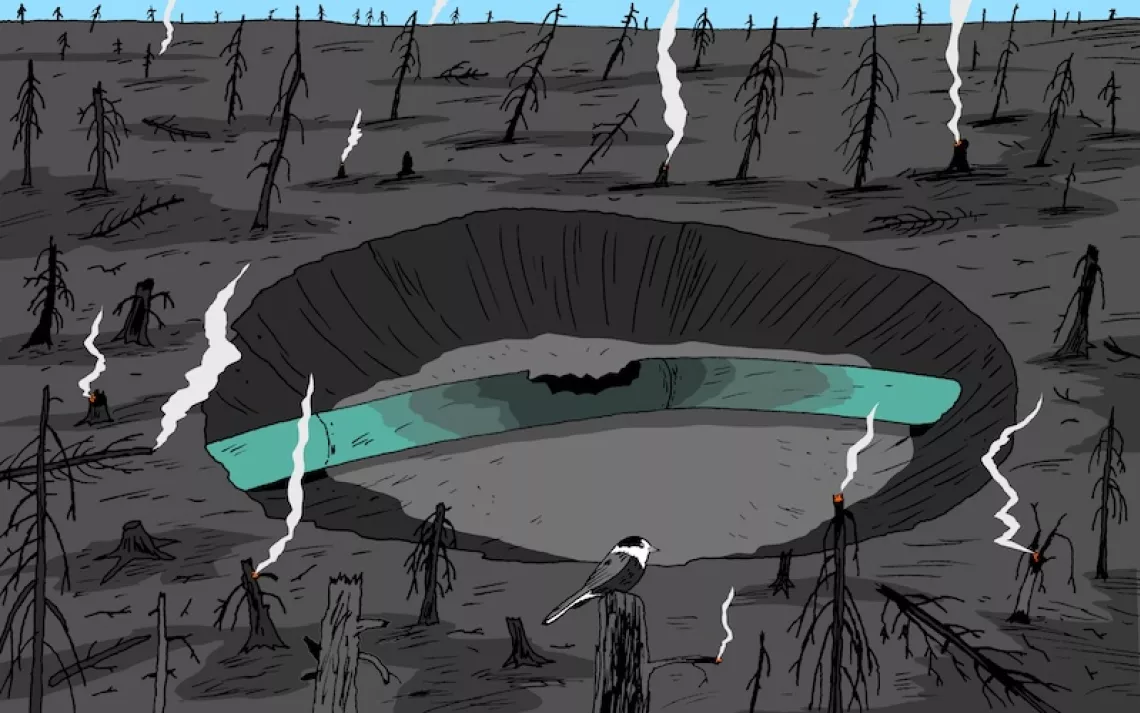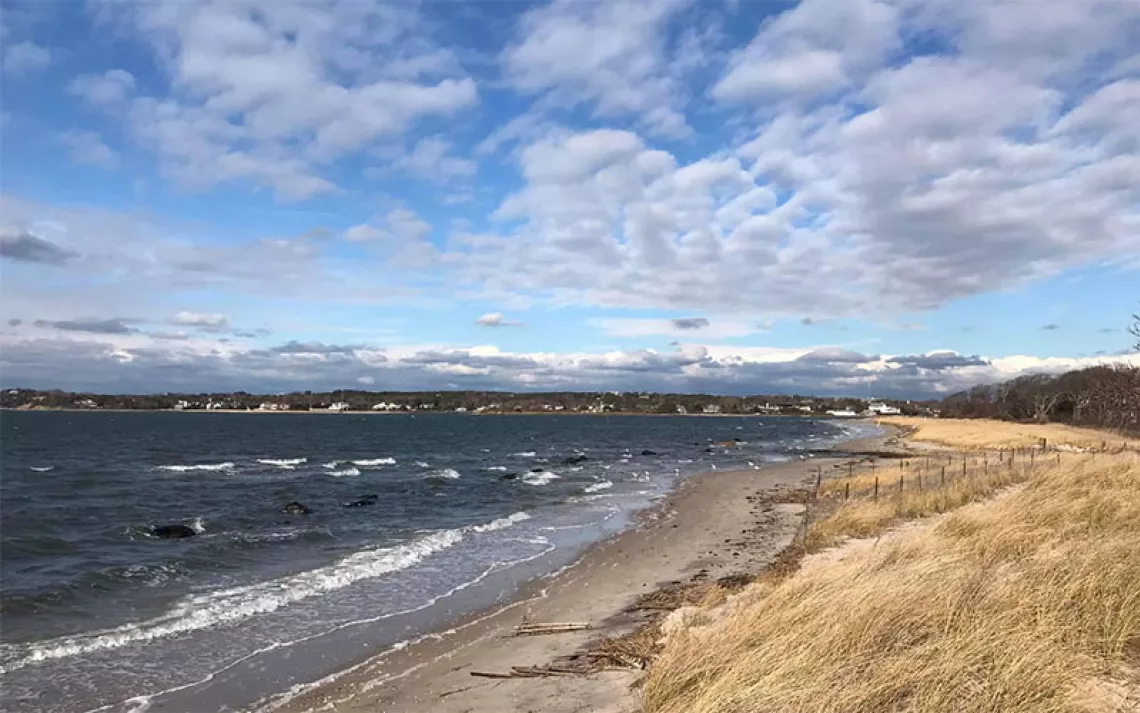Voices from the Peoples Climate March
Marchers came from near and far to join the demonstration in Washington, D.C.
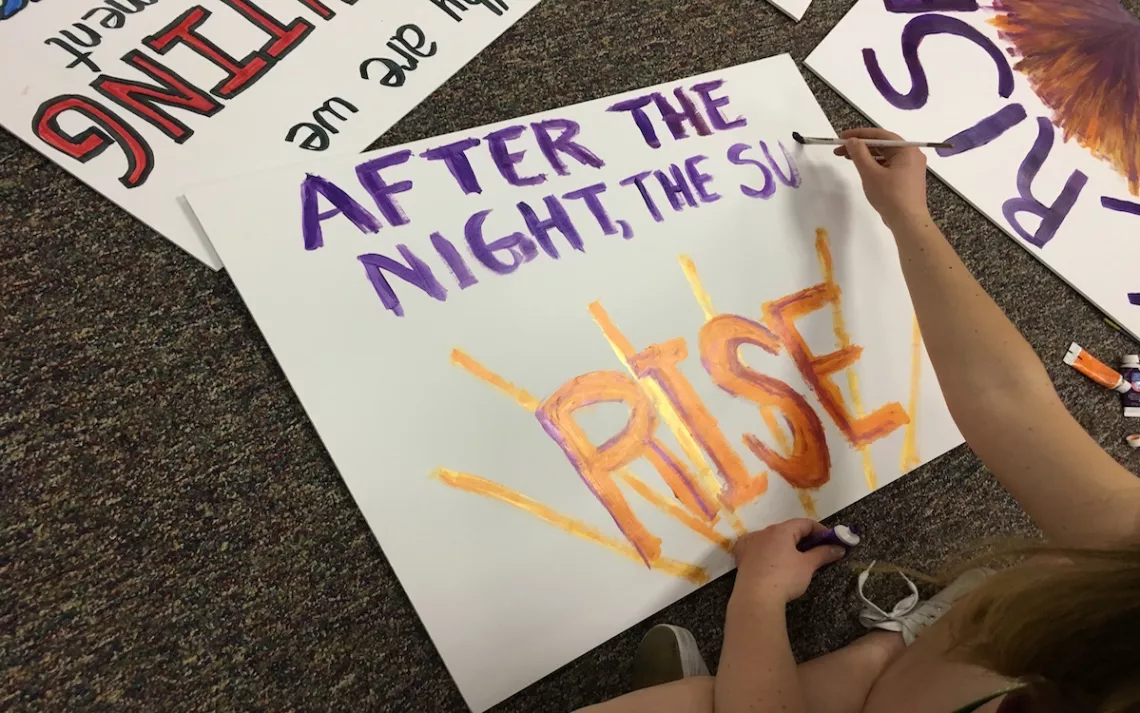
Photo by Jonathan Hahn
Over 200,000 people filled the streets of Washington, D.C., today in a massive Peoples Climate March to mark the 100th day of the Trump administration. People from all backgrounds, hailing from states across the country, convened in the nation's capital for the demonstration in a kaleidoscopic display of populism and political engagement.
Here are just some of the everyday voices present at today's march in D.C.
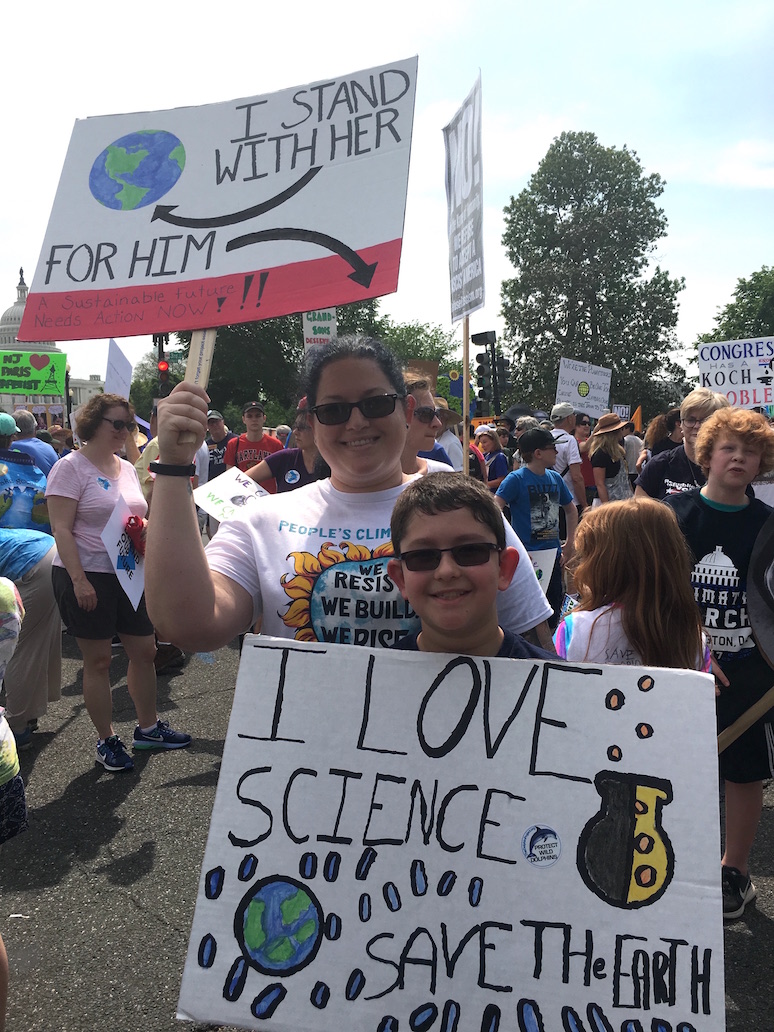
Photo by Jonathan Hahn
Amy Kennedy came to the march from Savannah, Georgia, with her son Jax. “The children are the future,” she said in an interview about why she traveled such a long distance for the march. “It’s not our planet; it’s theirs.”
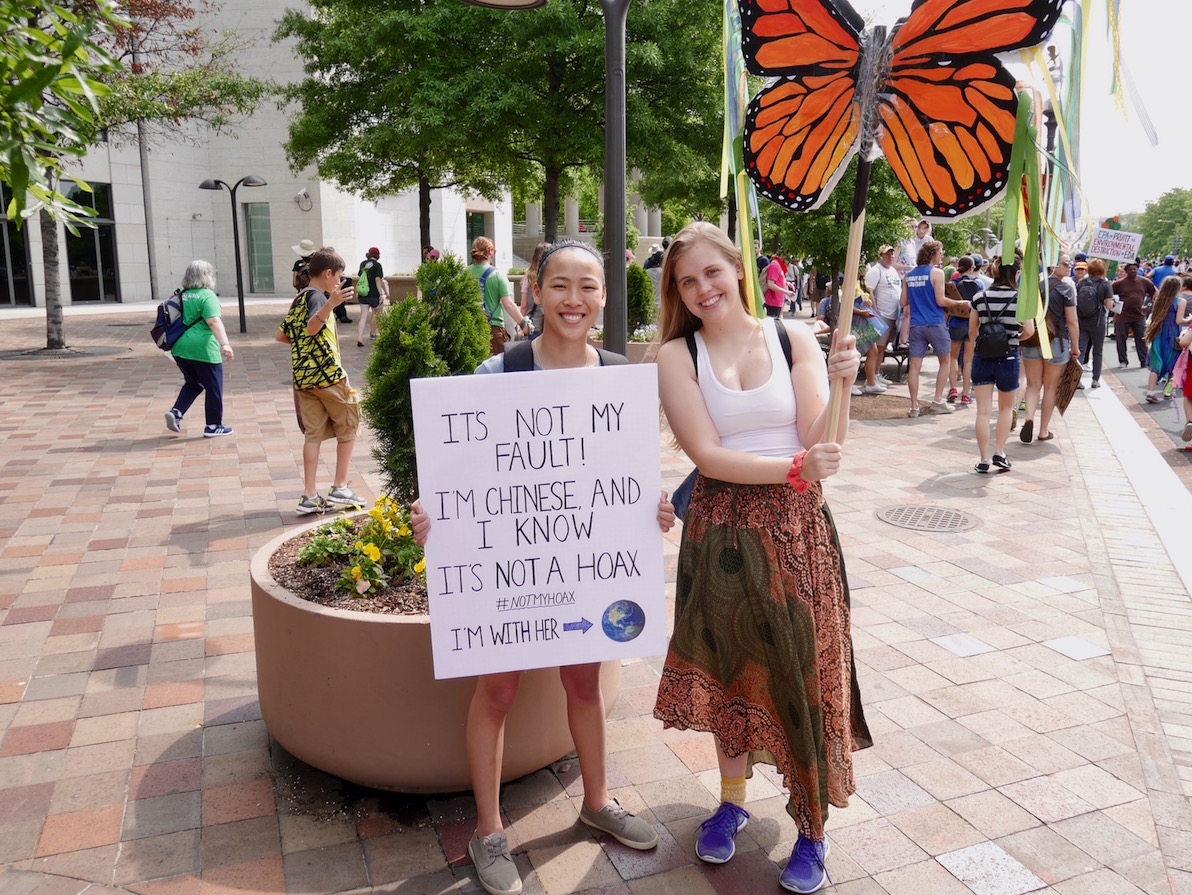
Photo by Drew Higgins
Annie Hanichak and Sophie Kivlehan are high school seniors and math-class buddies from Allentown, Pennsylvania. Kivlehan is one of the 21 students suing the government over climate change in Juliana v. United States, a case she hopes will eventually go to the Supreme Court. “It’s our future,” Kivlehan said, referring to the health of the planet. “If adults aren’t protecting it, it’s so scary.” Hanichak agrees. “Adults are slightly set in their ways, so it’s really up to the younger generation to put the first foot forward.”
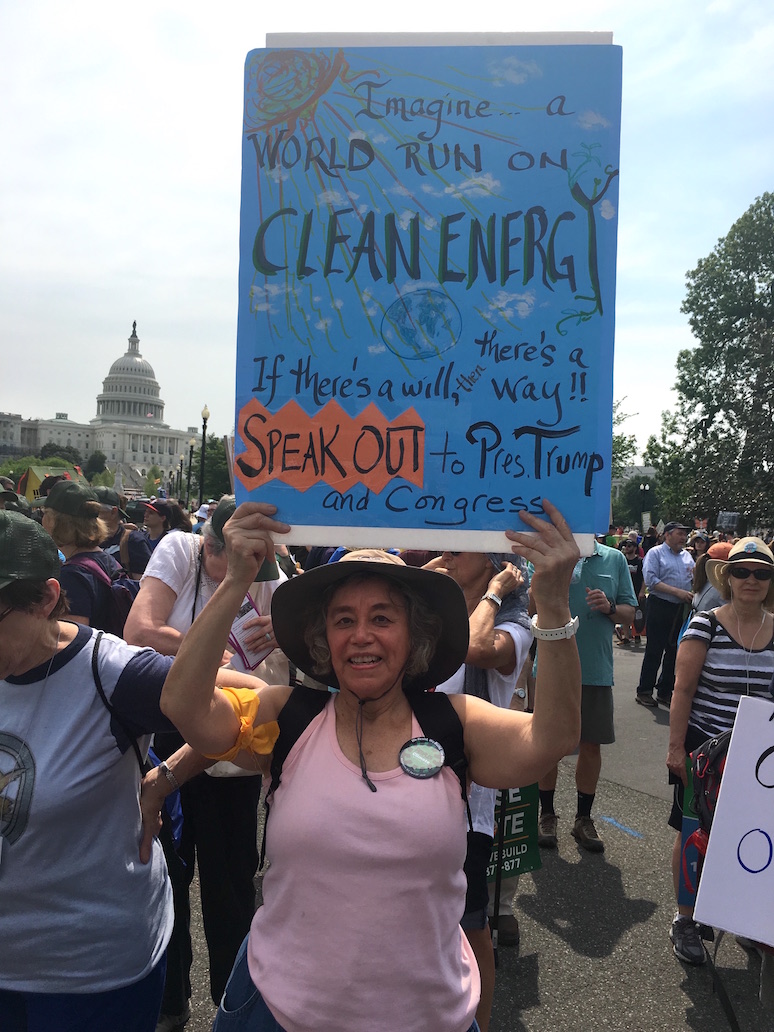
Photo by Jonathan Hahn
Maybell Kagy came to the march from Silver Springs, Maryland. “We have to speak up,” she said. “As an elder, I feel like I have more of a responsibility to preserve our world for the future generations.”
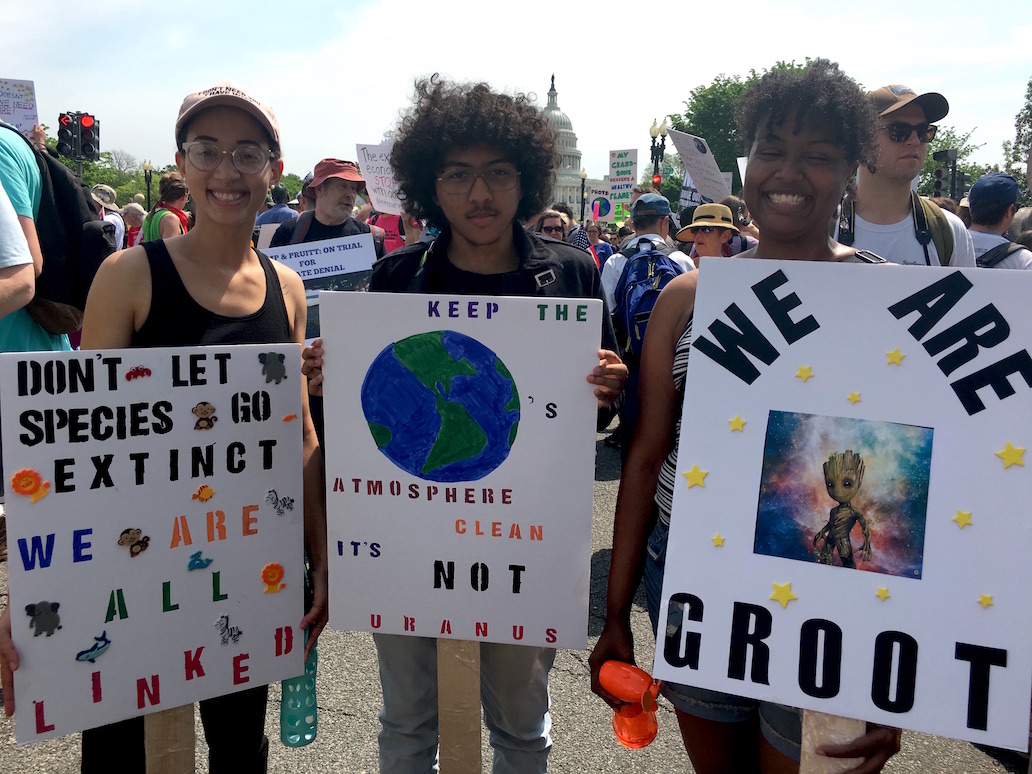
Photo by Jonathan Hahn
Deirdre Campbell lives just outside of Baltimore and came to the march with her youngest sister, Erica, and oldest nephew, Alex. “Our current administration needs to know that climate change is a real thing. Climate denial is not a policy.
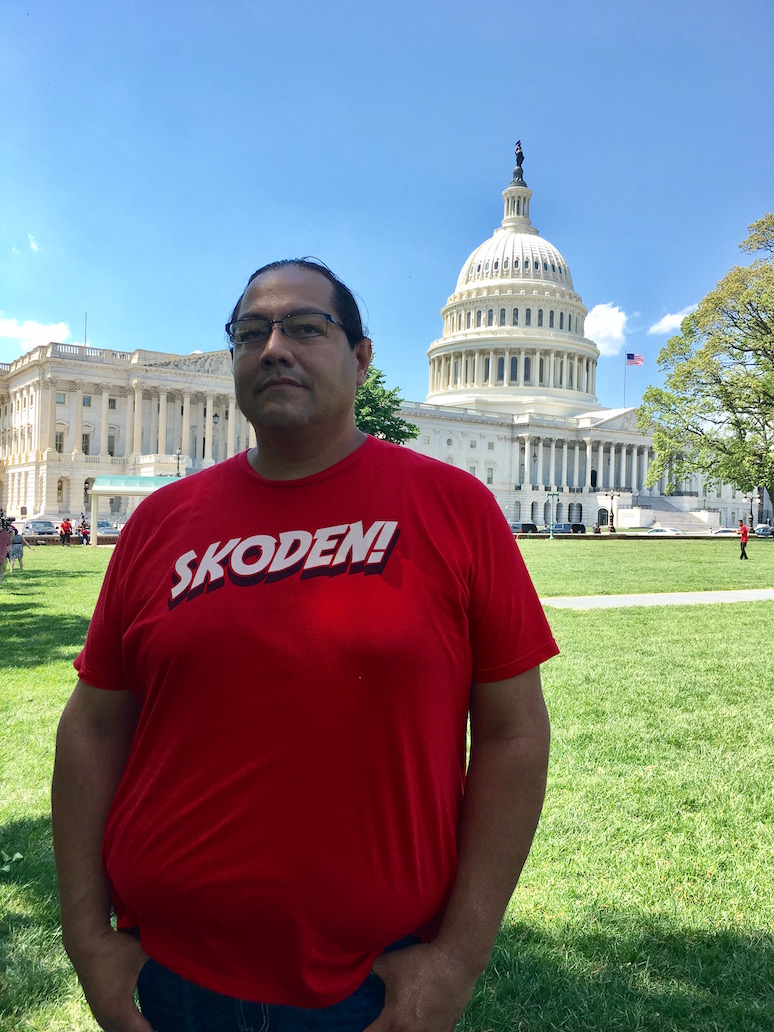
Photo by Jonathan Hahn
Wayne Frederick of the Rosebud Sioux Tribe is a tribal council representative for the Okreek Community. He came to Washington, D.C., to stand in unity with other indigenous people. “The Keystone XL pipeline is one of the most dangerous pipelines to our community,” he said.
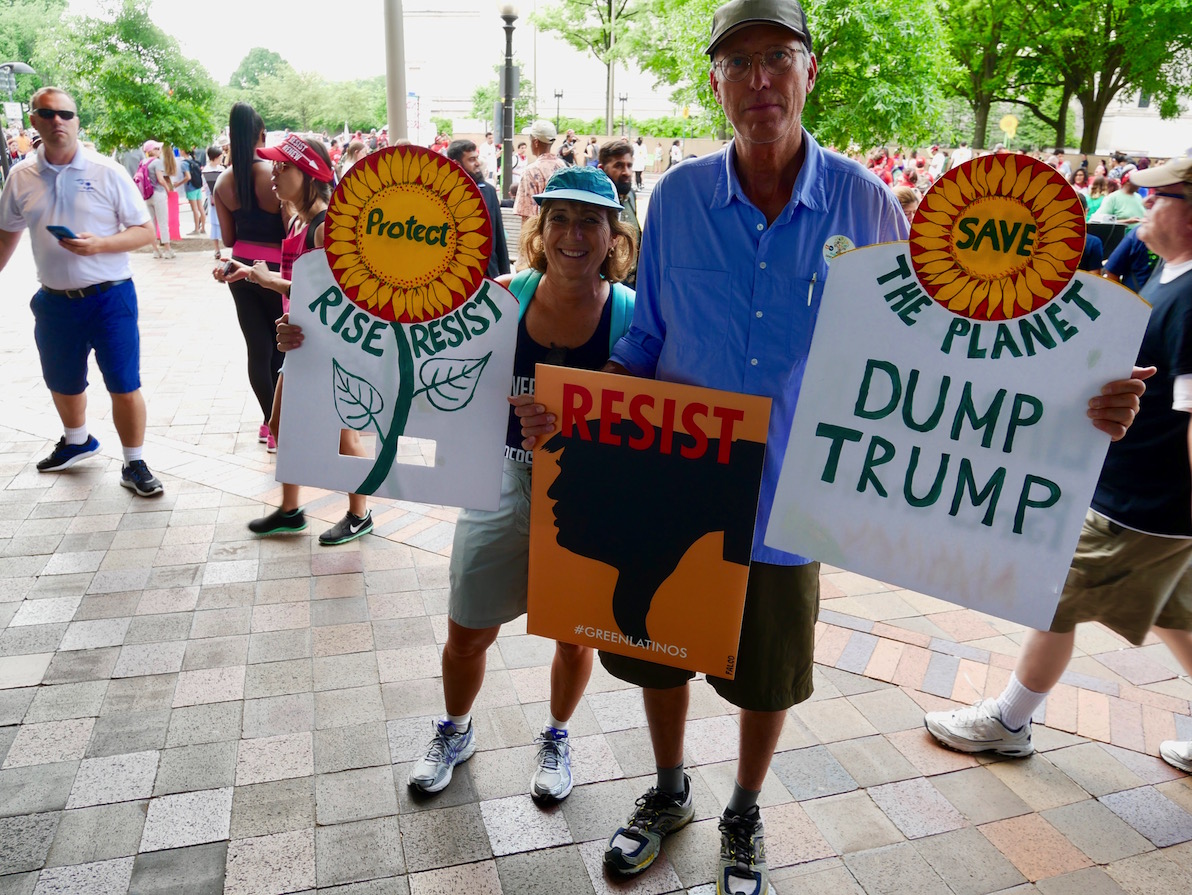
Photo by Drew Higgins
“We’ve made so much progress,” said Cathy Col, 61, who came from Gloucester, Massachusetts, with Stephen Rhodes, also 61. “We live near Boston Harbor, and it’s so much cleaner. There’s been so much progress over the last 10, 15 years to protect the environment. I’m afraid it’s all going to go down the drain, putting profits over sustainability.” She said she’s worried about national parks, national monuments, and rising sea levels. “Everybody has a different take and interpretation on how to support the planet,” Rhodes said. “Sometimes it’s resisting, sometimes it’s supporting, sometimes it’s just enjoying what you have. It’s so good to be here with all these other people that are of like mind.”
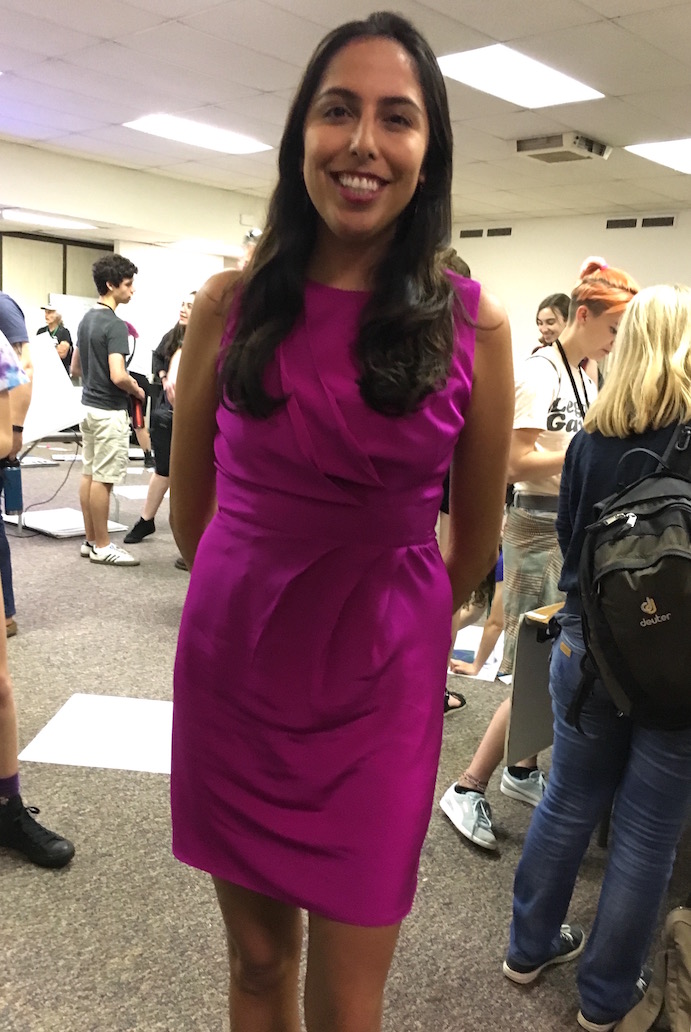
Photo by Jonathan Hahn
“Young people have shown up in a really big way in the resistance movement,” says Lydia Avila, executive director of the Power Shift Network, an organization that supports youth-led organizations dedicated to climate justice. “Young people didn’t vote for Trump’s climate-denial policies.” For youths looking to mobilize in the days after the march, she encourages them to create a group or club on campus or in their community that moves these issues forward. “Young people should see themselves as equal players in this movement. Your age is just a number. You are just as capable of enacting change in your community as the next person.”
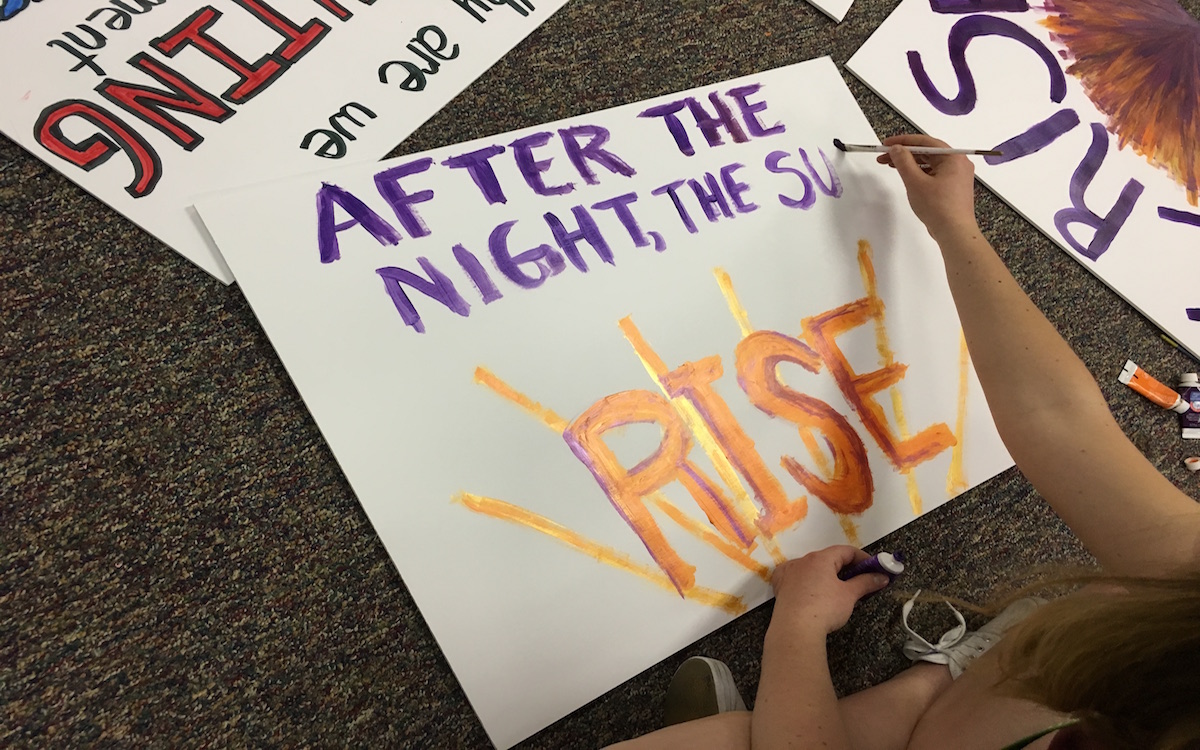
Photo by Jonathan Hahn
Maddie Atkins, 18, traveled from Portland, Oregon, to participate in the march. The day before, she created posters at the Peoples Climate Youth Convening at New York Presbyterian Church. “I’m here because I believe that young people have something to say about climate change,” she said . “We have the moral authority to speak about it. We’re not going to back down. This is not just about us; it’s about the future generations that come after us. Young people are collectively fed up with administrations that continue to value short-term priorities and short-term victories over the long term. Trump should realize that young people are not just going to sit back.”
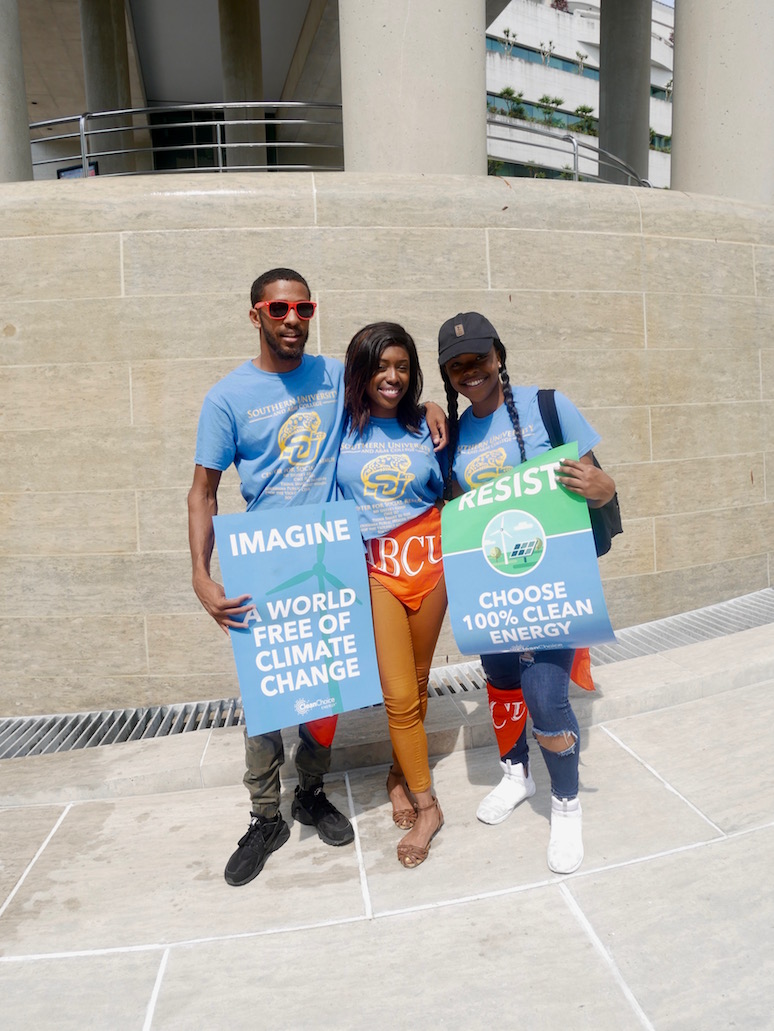
Photo by Drew Higgins
Sisters Sageda and Destiny Mason, and their friend Jason Smothers traveled 24 hours on a bus from Southern University in New Orleans, Louisiana. “Right after this march, we got to go right back on the bus,” Sageda said. Justin wanted to come to Washington because he feels they have a mission “to show that the African American community is involved and cares about the environment, too.” Sageda chimed in that they struggle in Louisiana with industrial plants and “predominately African American communities with a lot of health risks.” “There’s an Exxon plant maybe five miles away from Southern University,” said Justin. “When it rains, you can smell the sulfur in the air.” Sageda nodded. “Living in the South, we just have more of a chance to be polluted. To be in an environment of pollution.”
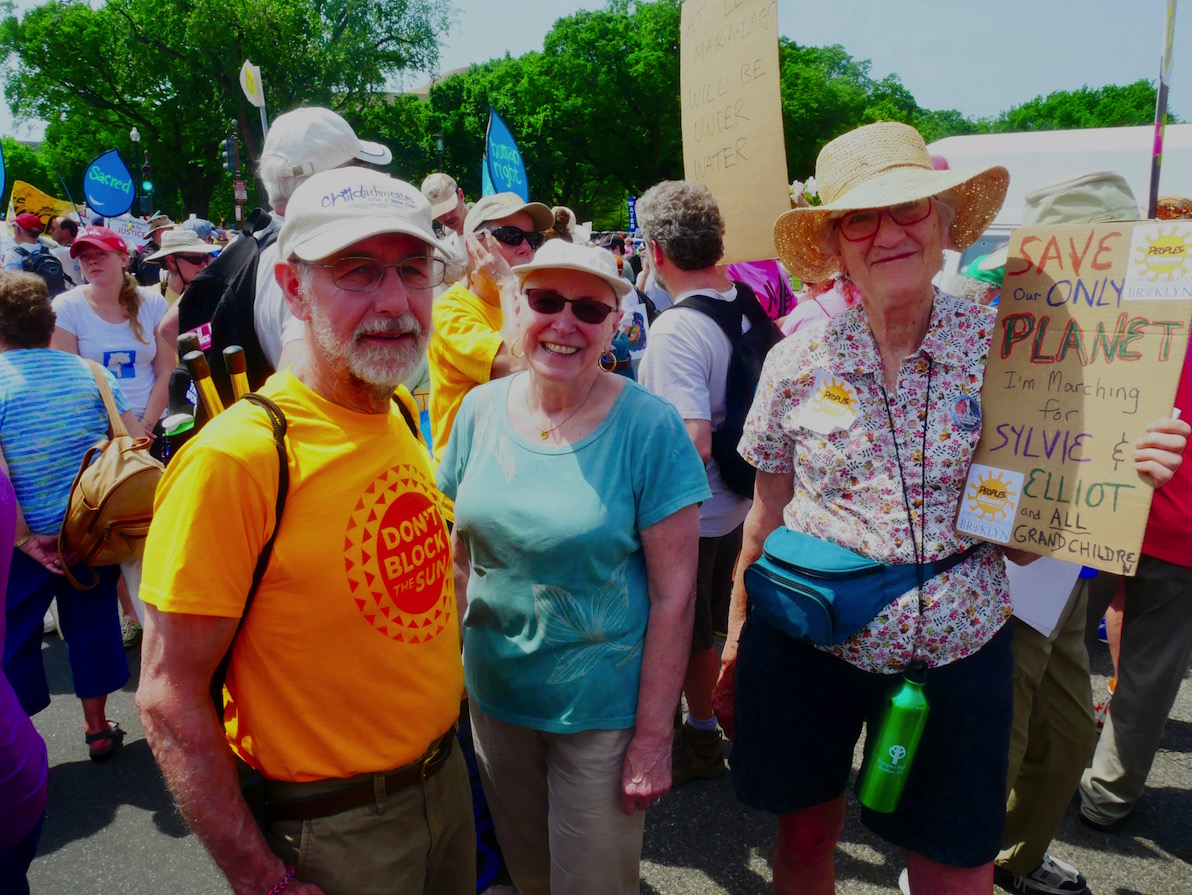
Photo by Drew Higgins
Cindy and Ray Wilson are members of the Unitarian Universalist Church of Indianapolis, a “green congregation” that reduced its energy use by 50 percent in the last five years with solar panels. Ray thinks climate change is the most serious and pressing problem facing humanity—“worse than nuclear weapons,” he said. The couple recently celebrated their 50th anniversary by returning to where they had their honeymoon on the island of St. Croix. As newlyweds, they’d seen vibrant schools of fish while snorkeling. “The reefs are totally gone now,” Cindy said.
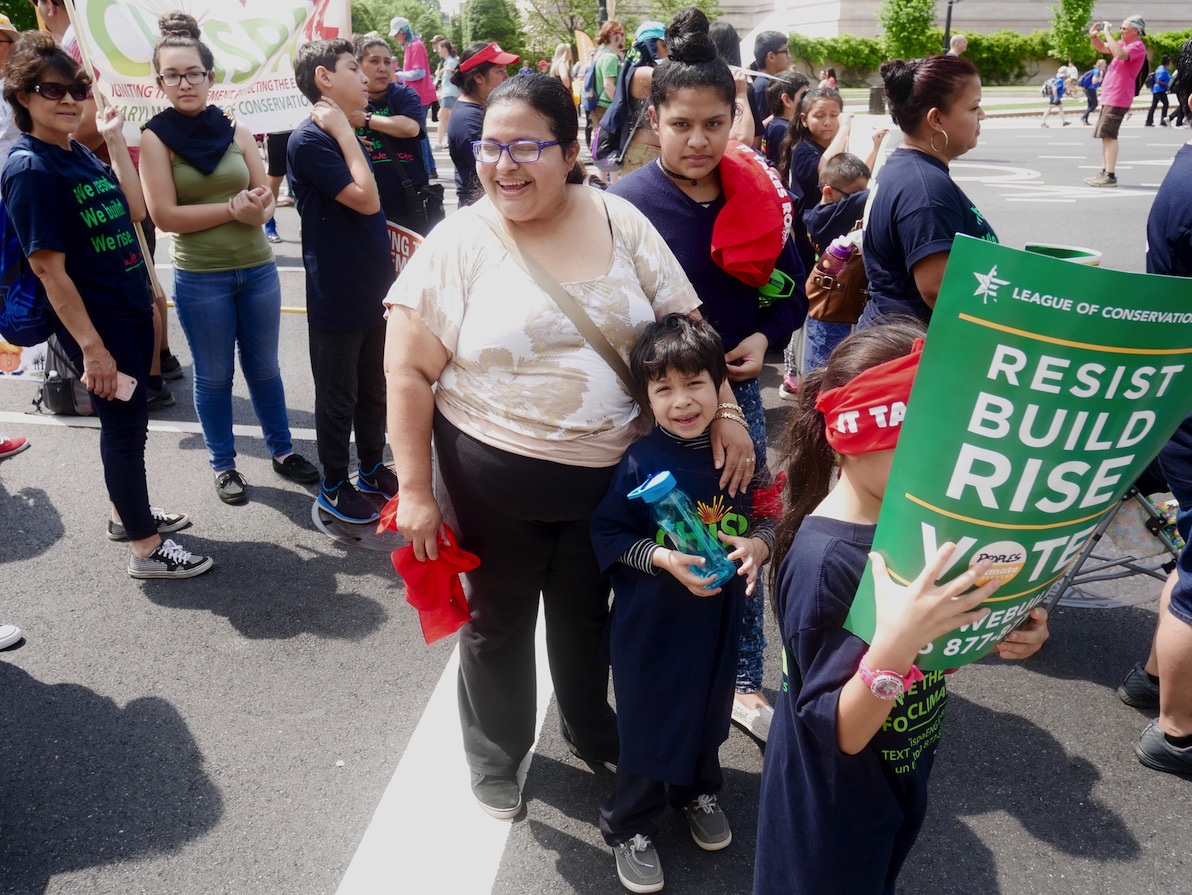
Photo by Drew Higgins
Glinda Hernández, 32, is originally from El Salvador. She now lives in Maryland and came to the march with her three kids, two girls and a boy. When asked why she was marching, Glinda said, “Por la tierra.” “For the earth,” her teenage daughter translated. “So we can have a better future.”
 The Magazine of The Sierra Club
The Magazine of The Sierra Club
